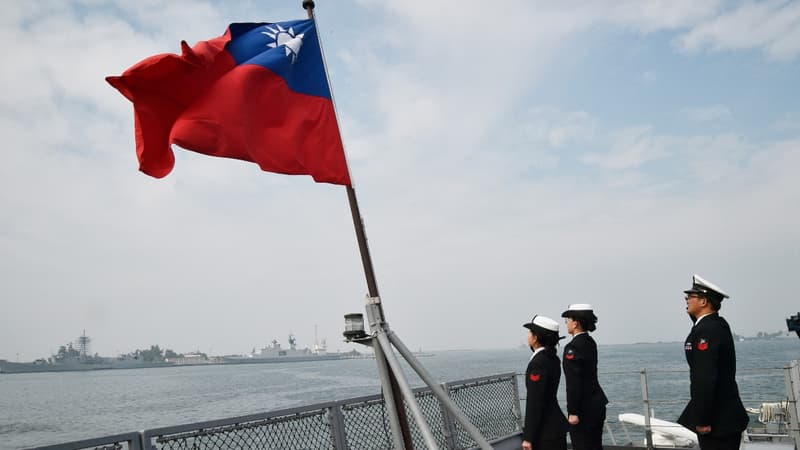The Chief of the Taiwanese Space Agency Wu Jong-Shinn believes that the island must launch telecommunications satellites as quickly as possible to guarantee its Internet access in case of a conflict with China, judging that “the time is changing.”
Taiwan needs 150 satellites in low terrestrial orbit (Leo) to maintain their communications if the submarine cables that currently connect the island with the rest of the world were going to be damaged, believes.
However, the entity has none, at a time when it lives under the threat of an invasion of Beijing, which has strengthened its military pressure in recent years around this territory it states.
SIX OBJECTIVE SATELLITES IN ORBIT IN 2027
In February 2023, two telecommunications lines were cut that served the Matsu Islands, which disturbed communications for several weeks. Taiwan plans to orbit the first of a group of six satellites at an altitude of 600 km in 2027 … The year, according to several US officials, of a possible invasion of the Chinese forces.
To accelerate the process, Wu Jong-Shinn, an essential judge to multiply contracts with foreign partners. “We have to develop our own technology. But you know … the time is working. We have to hurry,” he said.
The Taiwanese mobile operator Chunghwa Telecom has already established agreements in this direction. Importable in this industry, the American Starlink has 8,000 satellites in orbit. But the financial interests linked to the China of his co -founder, billionaire Elon Musk, and his controversial statements about Taiwan, which, he said, should be administered by China, have caused the island.
Therefore, Chunghwa’s Telecomundo preferred Eutelsat with a several million dollars concluded in 2023. The second largest worldwide satellite operator in low orbit, the European group has operated more than 600 since its merger with the British Oneweb in 2023. Taipei also established an association with the American astrannos and with Luxemburg Kuiper (Amazon) and the Channel.
Develop Taiwanese satellites
Taiwan remains in light years of space programs in the United States, China and Russia. Currently, the territory, also the world leader in semiconductors, has only seven meteorological satellites and another optical television.
But Wu Jong-Shinn expects Taiwan to have his own rockets, as well as a launch site in the 2030s and can multiply the pitches. However, some experts doubt economic relevance for the territory of launching their own communication satellite system, in the face of the immensity of the challenge.
“If we want it to work, we need a large number (satellites) on low orbit to have continuous coverage,” says the astrophysicist Brad Tucker of the National University of Australia.
This policy also requires a commitment of each moment, he adds, noting that “Starlink works because it is his satellite every three years” to renew them.
But for Taiwanese expert Cathy Fang, he would be “dangerous” in case of a conflict for the territory to trust only foreign satellite operators, which he can only control. In 2022, Elon Musk said he avoided a Ukrainian attack on a base of the Russian Navy by rejecting kyiv’s request to activate Internet access through Starlink.
For Cathy Fang, analyst at the Institute for Research of Democracy, Society and Emerging Technologies (DSET), with the support of the Government, there is no doubt. “We have to develop our industry,” he said.
Source: BFM TV


